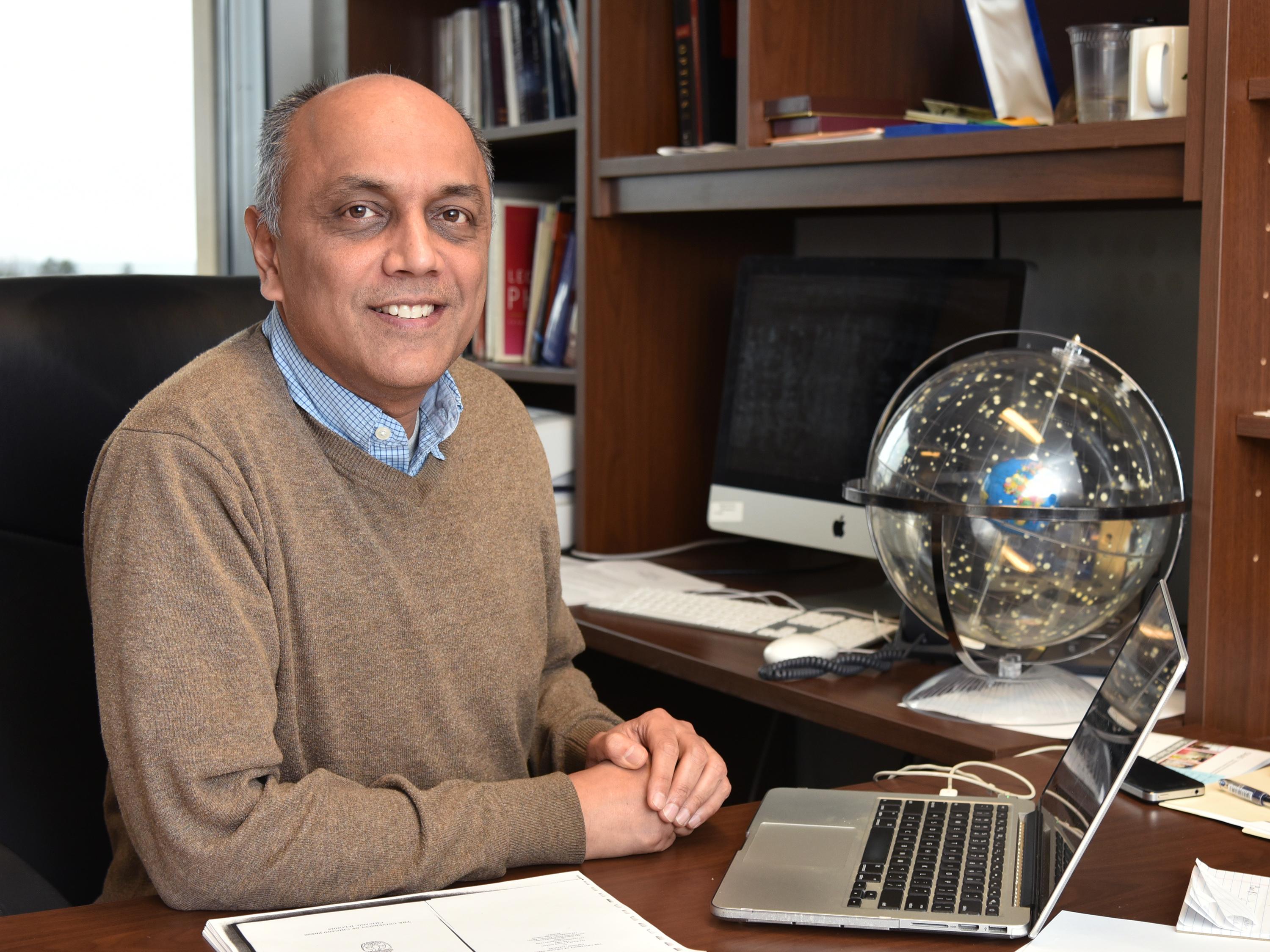Stellar research -- SUNY Oswego professor and chair of physics Shashi Kanbur, shown in his Shineman Center office, and the college will serve as U.S. lead on a funded astrophysics project probing the age and size of the universe, working with Yale University and two top Indian institutions -- the University of Dehli and the Inter University Center for Astronomy and Astrophysics in Pune.
SUNY Oswego will serve as the U.S. lead for a funded astrophysics project probing the age and size of the universe, working with Yale University and two top Indian institutions -- the University of Delhi and the Inter University Center for Astronomy and Astrophysics in Pune.
The exchange of scholars and research, funded by the Indo-U.S. Science and Technology Forum, continues and expands work by its co-principal investigators, Oswego physics chair and professor Shashi Kanbur and H.P. Singh of the University of Delhi. It follows a previous grant and ongoing research that have led Kanbur, Singh and other international partners to a number of publications on stellar structure and evolution.
Their work uses galactic markers such as Cepheids and RR Lyrae -- period-variable stars whose pulsation allow an estimate of their distance from Earth -- to provide research on the extra-galactic distance scale and studies that are “important for theories of galaxy formation and stellar populations,” according to the grant application.
The grant -- for 42,97,000 rupees (or around $60,000 U.S.) succeeds a previous one from the same group, Previous work was “more empirical in nature, while this will have a changed focus, more on the theoretical,” Kanbur said.
The grant will fund the ability of student and faculty researchers to travel from India to the U.S. and vice versa. “Much of this work is computer-based, but the best interactions come from meeting other people face-to-face,” Kanbur explained.
Kanbur and the team will use satellite data and observations to study such phenomena as the hydrogen ionization front-stellar photosphere interaction with the pulsating stars to test and explore theories about parameters applying to stars and space.
International investment on studying the universe continues to advance their work, including the planned June 2018 launch of the TESS satellite by NASA to “monitor more than 200,000 stars for planetary companions, but in doing so, will provide accurate light curves for many cool stars that exhibit non-radial pulsations,” the grant explained.
“I hope that some of this work will be related to the Large Synoptic Survey Telescope,” the largest infrastructure project ever funded by the National Science Foundation, he said.
Some of the study taking place on campus as well as having the data codes in Oswego provide a tremendous resource to interested students, he noted.
The ongoing research of Kanbur and the team has helped high-achieving students over the years, including 2012 Oswego graduate Earl Bellinger, a Ph.D. candidate at Yale who has performed research in labs around the world and recently earned a prestigious post-doctoral fellowship at the Stellar Astrophysics Center in Denmark.
“One of the most satisfying things is that some of these students now come to the same conferences I do in their own right,” with productive careers thanks in part to working on various aspects of this research, Kanbur said.




